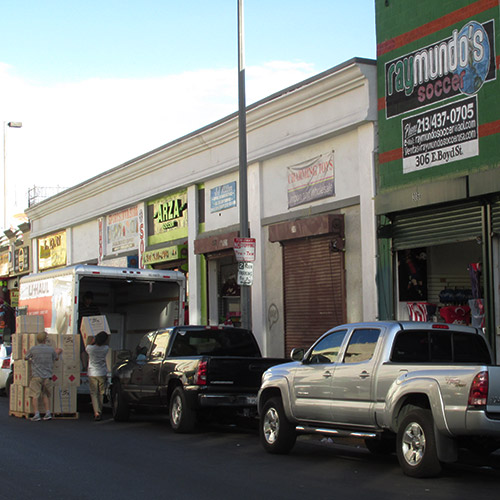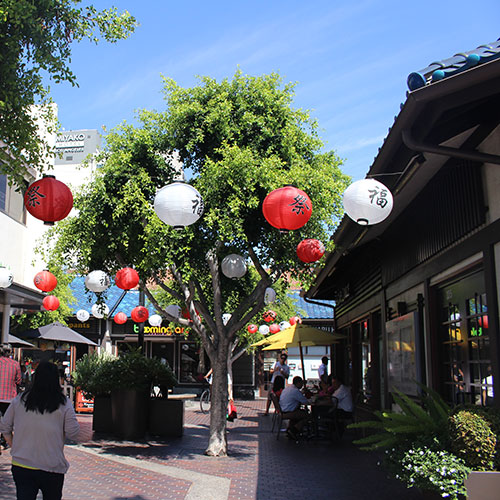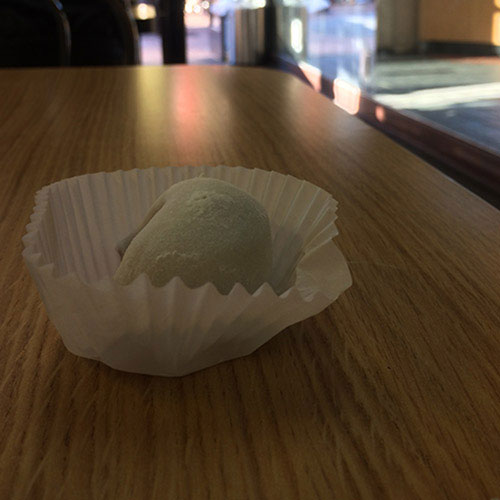RIF.LA is a consignment store for shoes, meaning it acts as an intermediary between people selling their new or used shoes and the customers who want to buy them. The seller does not get paid until the shoe is purchased and RIF.LA only receives a small percentage of the sale. Even though similar sneaker shops have sprung up around Los Angeles in recent years, RIF.LA was the first.
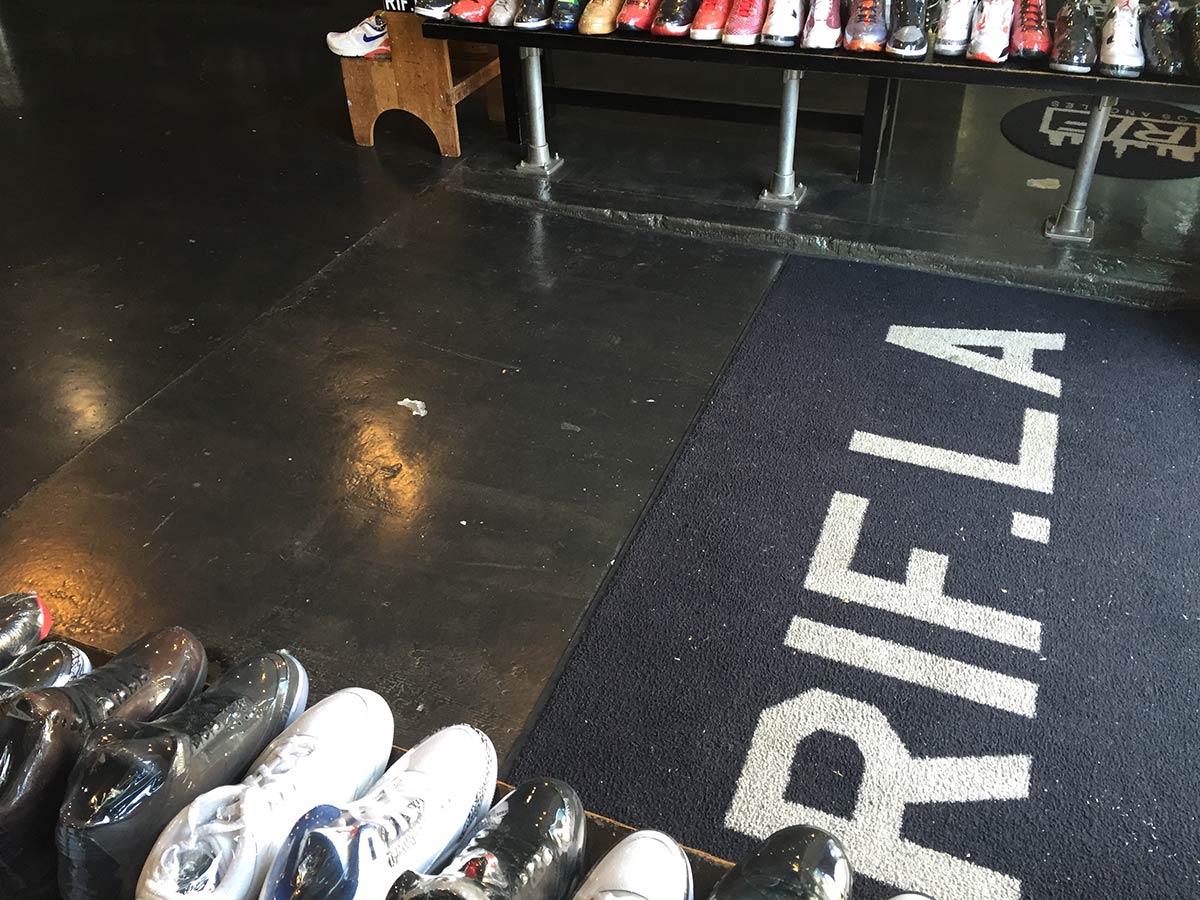
Good people helping good people
When RIF.LA opened in 2006, it was the only consignment sneaker shop in Los Angeles. The franchise has since expanded to open two new shops with sights set on a third in 2016, but its success is not a product of ruthless business practices. RIF.LA operates under a motto of “good people helping good people.” In fact, their employees are hired based on it.
“Of course, you bring in a resume, but you have to write a one-page summary of what makes you a good person in life. Like what made you the person you are now; what makes you a giving person and a selfless person,” said 26-year-old Jaime Rojas, a RIF.LA employee who was hired eight months ago.
Rojas started shopping at RIF.LA in 2010. But after he befriended one of the store’s current owners, Jeffrey Malabanan, at another LA sneaker shop called Undefeated in 2011, stopping by the store became more personal.
“It was just like going to go see your friends at work, but you end up buying something at the end,” Rojas said. “He played a big brother role in a way. Sometimes he wouldn’t even sell me sneakers because he wanted me to do something better with the money that I had than buy shoes.”
This personal atmosphere stood out to Rojas as a customer and attracted him as an employee. He applied to work for RIF.LA in 2013, but the store’s schedule conflicted with his job as a DJ. After three years of trying to arrange his schedule to fit the store’s needs, Rojas finally got the job in April 2015.
“It felt like they were represented something that I represented,” he said. “It’s more of a team-driven, family-oriented place than a regular sneaker shop where you’re just trying to make sales for the day.”
Rojas isn’t the only employee who started out on the other side of the counter; according to 20-year-old Connor Tapley, the store’s marketing director, every one of the store’s employees was a customer first.
“I collected shoes and this was the best place, being a 13- or 14-year old, to buy shoes at an affordable price,” he said. “The only other competitor is Flight Club, which only sells brand new shoes and they’re really high-priced. Here, I was able to buy $100 shoes that were really worth $300.”
As a consignment sneaker shop, RIF.LA can afford to offer these lower prices. After looking at the way competitors value a new pair of the shoe’s model, the employees undercut that amount accordingly, which results in more affordable prices for expensive sneakers.
“We don’t like when sneaker stores put the market value of shoes super high,” Rojas said. “We try to have everyone afford the shoe that they want while still making a profit.”
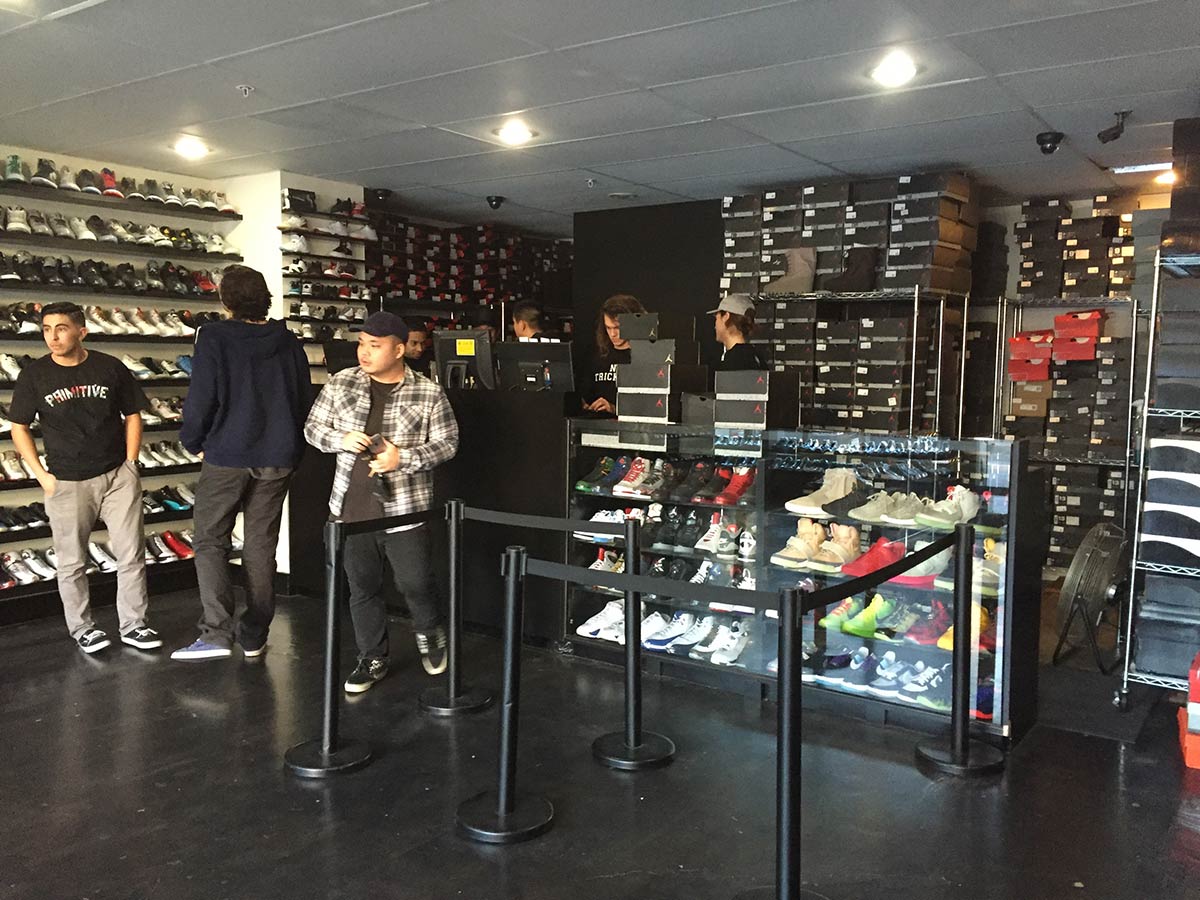
Japanese businessman Kai Nagakusa opened RIF.LA in 2006 as an offshoot of his consignment sneaker shop in Tokyo called LA Avenue. The store’s first manager, Mitsunobu Kawajiri, named the store RIF.LA, which stands for “Reinforce LA” to represent taking the culture revolving around consignment shoes in Tokyo to LA.
“At the time, this was a really brand new concept of consignment shoe stores in the United States and it was mainly based in Harajuku in Tokyo,” Tapley said. “That’s a really fashion-forward place and they had many consignment stores over there, so the whole thing was bringing that concept here.”
Around 50 percent of the store’s shoes are being sold on consignment. If the shoe is new, the seller receives 85 percent of the sale value; if it’s used the seller receives 80 percent. As the consignment store, RIF.LA keeps the remaining revenue. Sellers don’t get paid until their shoes are sold, and if no one buys them, the sellers can take the shoes back.
“It’s supply and demand, like any market,” Tapley said. “Every Jordan release now sells out, but that doesn’t mean that we can take them all in. What’s happening now is we’re seeing a bigger trend of shoes that the retail price goes up, but that doesn’t mean we can sell them for any more than retail. We actually sell them below retail.”
The shoes are bought and sold based on their model, size, and if they’ve been used, condition. After confirming the shoes are authentic, the employees decide whether they can be classified as “worn excellent” or “worn very good.” Shoes that are in very good condition can only be purchased in stores so the buyer can look at the shoe firsthand. “We may put it up online, but we don’t sell it online because I don’t feel comfortable selling somebody’s shoe that I wouldn’t like to receive,” Rojas said.
RIF.LA also has a buyback policy where the store will buy brand new shoes from customers for 60 to 70 percent of the market value.
“It’s close enough to the market value, it still makes you enough money. Probably enough money for you to be like, ‘Okay, so I just got a win, and not a loss,’” Rojas said. “We try to give them the best deal we can when it comes to buyback because things happen in life. You need money for the rent, you need money for whatever occasion that comes up.”
Once Rojas lowered a price by $80 for a mother who wanted to buy a pair of 2015 Air Jordan 6 shoes in maroon. “The kid really wanted the shoe. The shoe was priced at $300. I went ahead and I lowered it down to $280 just because I know if she was a single mother, she has to raise a kid but she still has to pay the bills,” he said.
She only had $230 in cash, so in the spirit of the holidays, Rojas lowered the price to $220, what RIF.LA had paid to buy the shoe.
Rojas said sometimes the employees may end up trying to help too much, but the goal is to give customers the best experience. “If you go to other sneaker stores, you kind of get persuaded to a shoe sometimes,” Rojas said. “In RIF’s case, we’re trying to find a shoe that fits you at the moment. Sometimes people want to make that sale in other stores that they’ll probably sell you a shoe a size and a half bigger than what it’s supposed to be.”
This is where the influence of the store’s motto and employee selection process can be seen most clearly, but it’s not a secret. RIF DOS, the clothing store, releases shirts and sweatshirts with the motto printed on the front every year. “It’s one of our very popular shirts,” he said. “It usually has a number on the left sleeve that represents the year of the shop.”
The 2016 shirts will carry a 10, to represent the decade RIF.LA has been serving and nurturing shoe enthusiasts in Little Tokyo. “I love shoes. There’s something about shoes that I see as an art form that is not just something you wear on your feet,” Rojas said. “It represents how you’re feeling, how you live, what’s your taste in certain things. It’s like music or art, in a way. It’s not just shoes.”
